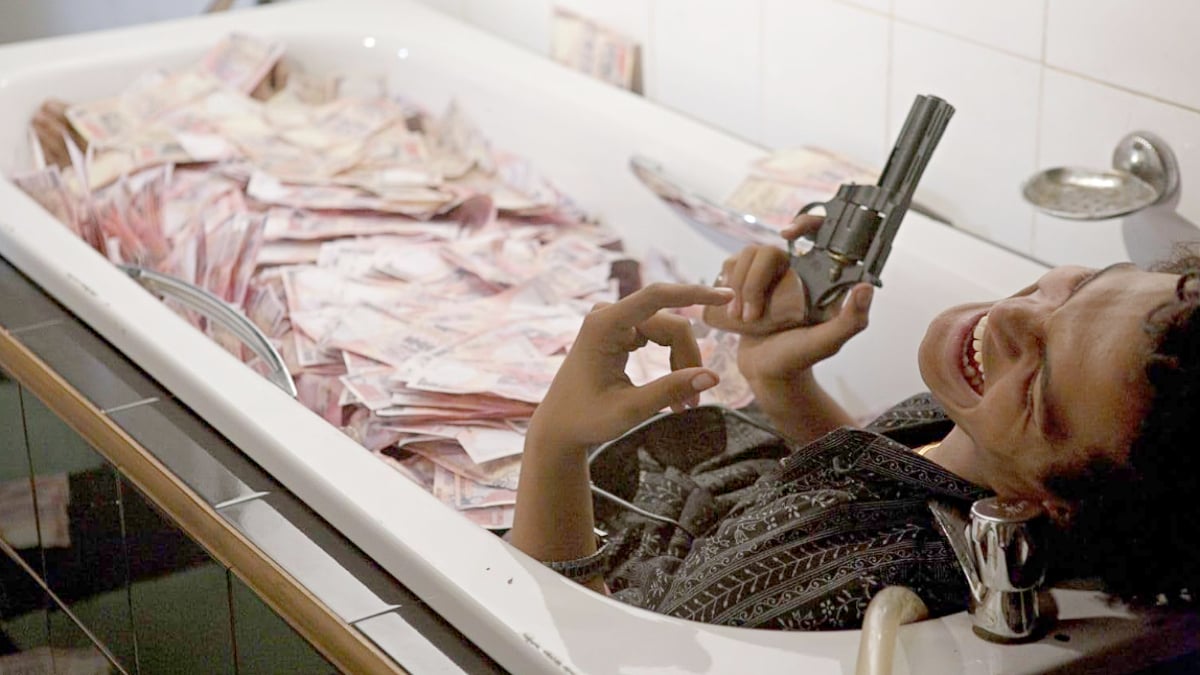
Delivering a mesmerizingly volcanic performance, Matthias Schoenaerts is perfectly cast in Alice Winocour’s Disorder, a PTSD drama much more interested in showing than telling. Dark, smoldering, mysterious characters are the Belgian actor’s specialty, and here he embodies yet another troubled manly-man to riveting results. He plays Vincent, a muscly war veteran who returns home to France after his military superiors deem him psychologically unfit to return to duty. He’s plagued with paranoia, has developed a violent knee-jerk response to anything he deems out of the ordinary, and seems to have an undying urge to smash things–what’s not to love?
Sarcasm aside, Schoenaerts actually does imbue what could have been an uncomfortable, frustrating character to be around with a measure of compassion and broody magnetism that makes Vincent relatable, if not quite likable. He’s a picture of pent-up aggression, but it’s clear that his violent tendencies are the result of trauma rather than ingrained in his true nature.
Nevertheless, he finds a use for his military skills when he lands a security gig at a Bond villain-chic mansion party full of European debutantes and shady, cigar-smoking businessmen. The job gets sticky when he’s suspected of eavesdropping on a backroom business meeting by the party’s host, Whalid (Percy Kemp), and it comes as a surprise when the Lebanese bigwig hires Vincent to be a personal guard for his wife, Jessie (Diane Kruger) and young son.
While that’s all that happens in the party scene as pertains to the plot, Winocour actually spends around twenty minutes in the mansion, hovering behind Vincent’s shoulder as he weaves through the dolled-up crowds and patrols the shadowy, ornate hallways and side rooms. It’s incredibly cinematic: Vincent doesn’t say much of anything, but the evocative camera moves, editing and music help us get in sync with his state of mind and the extraordinarily meticulous and instinctual way he surveys his surroundings. The scene is terrific, and it sets both the tone and pace for the rest of the movie.
Disorder pulls off the Hitchcockian movie-magic trick of using cinema fundamentals to make the audience see the world precisely the way the protagonist does. One scene sees Vincent driving Jessie and the boy to the beach when he suddenly notices a black car in his side mirror, following them down the cliffside two-lane road. He speeds away, dodging in and out of traffic to get the pursuers off of their trail. Jessie, of course, screams at him to stop the car, looking at him like he’s got two heads. Sure, he’s acting crazy, but we’re certain he isn’t. Or is he?
The unreliable narrator appeal helps keep things interesting throughout. Winocour didn’t set out to make a movie about PTSD; she set out to make a movie that makes you feel like you have PTSD. She’s mostly successful–the voyeuristic camerawork is suitably disorienting and kinda creepy–but there are times when the pounding, screeching score doesn’t quite align with the moderately concerned look on Schoenaerts’ face.
Kruger’s quite good in the role of concerned mom and resentful trophy wife, but the standout supporting role actually comes out of nowhere, from the periphery. Paul Hamy plays Vincent’s childhood friend Denis, who joins him at Maryland (the name of the mansion from the party; also, the movie’s original title) to help protect Jessie and her son from evil men in special ops gear Vincent is sure will be swarming the sprawling estate at any moment. Hamy has a wonderfully entertaining moment that cuts the sexual tension between Vincent and Jessie like a knife and adds a much-needed splash of color to a mostly doleful, frenzied affair. It’s a clutch performance that, while fleeting, is integral nonetheless.
Disorder is a deceptively artful, abstract movie despite its surface-level, suspense-thriller trappings. Details on Vincent’s history and what messed him up so badly are only hinted at, and while there are the occasional eruptions of violence, each bloody encounter is primarily designed to offer a deeper look into our hero’s psyche. Audiences hoping for a nail-biting, trigger-happy romp on the French Riviera will likely be let down. What Winocour offers here is a character study led by an actor who, beneath the bulging biceps and pecs, brings to his role depth of emotion and a knack for nuance.





Published: Aug 12, 2016 12:12 pm